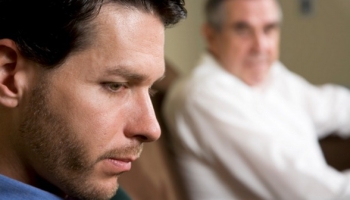Reading Time: 3 minutes
The road to recovery isn’t an easy one, but it is one that leads to a fulfilling, healthy life. Because of the difficult transition from rehabilitation to your “old” life, you may feel at risk of relapse due to triggers.
Substance Abuse and Mental Health Services Administration has delineated four major dimensions that support a life in recovery:
- Health—overcoming or managing one’s disease(s) or symptoms—for example, abstaining from use of alcohol, illicit drugs, and non-prescribed medications if one has an addiction problem—and, for everyone in recovery, making informed, healthy choices that support physical and emotional well-being.
- Home—having a stable and safe place to live.
- Purpose—conducting meaningful daily activities, such as a job, school volunteerism, family caretaking, or creative endeavors, and the independence, income, and resources to participate in society.
- Community—having relationships and social networks that provide support, friendship, love, and hope.
Triggers that undermine the stability of any of these dimensions can lead to relapse. One way to lessen the likelihood of relapse is to limit the number of triggers.
Ideally, the people in your life form a solid support system. You should have family and friends that stand by your side, visit and call you, and participate in whatever way your treatment center allows.
Sadly, many people don’t have a strong support system to back them during recovery. Rather than have unfairly high expectations that your support system is bound to fail at achieving, take control of the potentially explosive social forces in your life.
Family Members Who Abuse Drugs or Alcohol

Constant negative interactions with a family member can create high levels of stress, making one more prone to relapse.
Many people begin abusing drugs and alcohol because the behavior was modeled for them by family or because substance abuse was a shared activity with family. Socializing with family who still abuse drugs and alcohol can undermine your recovery. The human brain forms memories when it experiences the pleasures of drug use and people in recovery are well-aware that triggering those memories leads to an urge to get high.
Although being around drug and alcohol users will make you want to use, it may be possible to arrange sober activities with family members. Meet at a neutral area where substance abuse isn’t included. Volunteer, go to the dog park, visit a farmer’s market, attend church, go to support meetings, take a yoga class, work out at a gym, or another activity more suited to your lifestyle. Once you start developing memories that don’t involve drug use, it will become much easier for you to enjoy being social and to continue down that path.
Family Members Who Are Toxic
Society pressures people to stay connected to family, even when family cause harm. If based on their treatment of you, you would never have a family member in your life if they weren’t family, that person is toxic and you need to remove them from your life.
Signs the relationship is toxic:
- You live in a state of agitation because you fear mental, emotional, physical, sexual, or verbal abuse.
- Every single moment of contact is negative and that causes you to feel shame or low self-worth.
- The relationship causes you a level of stress that bleeds over into your other responsibilities (work, home, both).
- You are consumed by the toxicity of the relationship and you spend all of your time trying to find out if anything was said about you or to defend against gossip.
- The relationship takes from you and offers nothing in return.
- You are being used for money or goods.
- Over the top, crazy games dominate the relationship.
All toxic relationships should cease. It may feel awkward, but you need a positive community and to put your full mind into maintaining your sobriety.
If you do relapse, remember that it is not a failure. According to the National Institute on Drug Abuse, “Treatment of chronic diseases involves changing deeply imbedded behaviors, and relapse does not mean treatment has failed. For a person recovering from addiction, lapsing back to drug use indicates that treatment needs to be reinstated or adjusted or that another treatment should be tried.”
